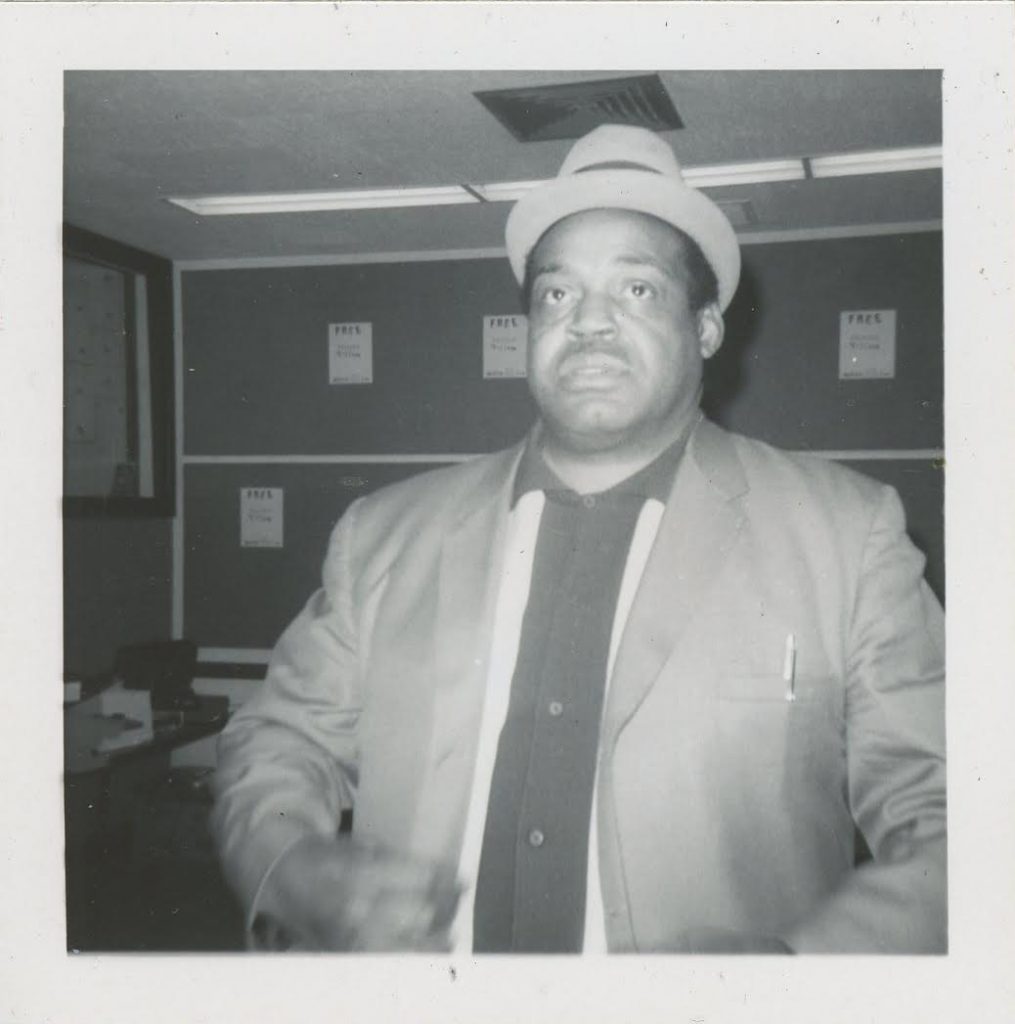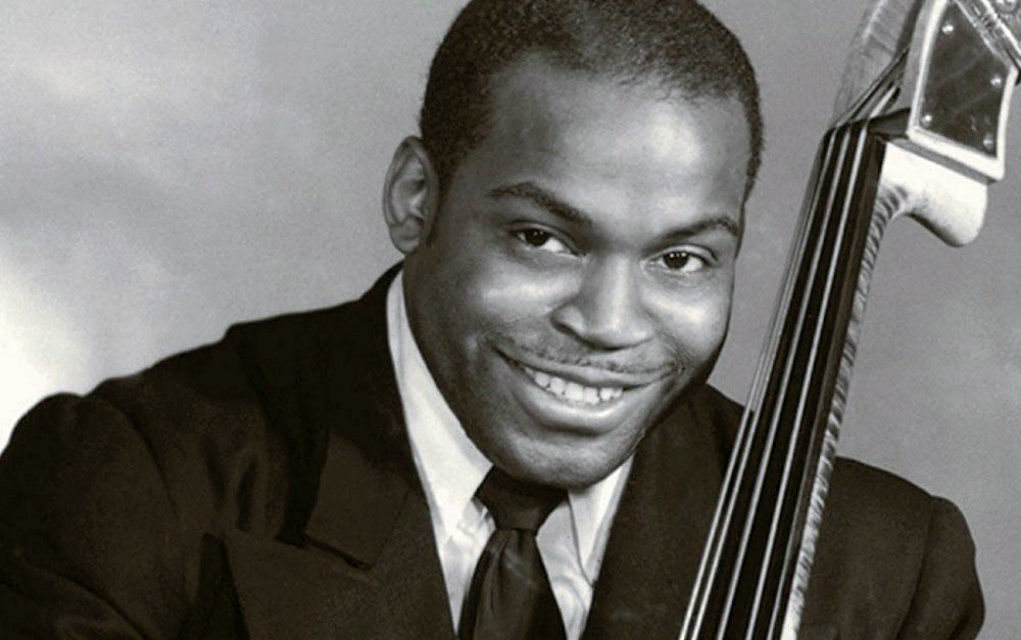Willie Dixon (July 1, 1915 – January 29, 1992) — arguably the greatest blues songwriter ever, or at least of the post-World War II era — as well as Chicago blues’ king of the standup bass, and producer of countless sessions for Chess, Cobra and other labels, was born 110 years ago in Vicksburg, Miss.
Initially a member of the Big Three Trio with Leonard “Baby Doo” Caston and Ollie Crawford, he came to Chess where he helmed artist and repertoire duties for Muddy Waters, Howlin’ Wolf, Bo Diddley, Koko Taylor, Little Walter, Otis Rush and more.
Willie was a longtime friend of mine, in two cities (Chicago and later Los Angeles) and was an inspiration — and (as my real father frequently and fondly joked) a surrogate father.
We met in a very unusual way. I was a DJ on my Chicago suburban high school FM radio station, WNTH-FM (33 watts of power pulled its reach along the lakefront from about Waukegan down to Chicago’s far North Side). I also wrote for the school’s underground newspaper, The Fifth Estate. I was about 14 years old when I wrote a story titled Defining the Blues. I looked in the Chicago phone book and there was a Willie James Dixon listed. Could that be him? Only one way to find out. And sure enough it was. (Also listed at that time: Chester Burnett, McKinley Morganfield, Eurreal “Little Brother” Montgomery.)
The phone call didn’t go so well at first. Willie was guarded, as well he should have been. I was a naive suburban pre-teen cold-calling him and asking, literally, “What is the blues?” He did give me an answer, concise but every bit poetic, which I quoted for the article. In addition, I asked if he’d come up to the north suburbs from the South Side to be interviewed on my radio program. Sure, he said. And he took down the address. He was right on time and couldn’t have been nicer. This not-great photo below was taken with an Instamatic on that occasion.

I kept in touch with Willie, and visited him two or three times at his office/studio at 7711 S. Racine Ave. on the South Side. I met his business partner, Ed Winfield. Both were tremendously kind to me. At the time, they were managing and booking then-four-year-old Buffalo, N.Y.-based blues organist Lucky Peterson (who has since grown up and passed on).
Cut to the early 1980s. I was visiting L.A. (prior to moving there) when James Caan’s Thief film premiered with a Willie Dixon song in it. Soon Willie moved to L.A. to be closer to his new revenue base of films — as well as for the milder weather. He had a wonderfully comfy home in the Glendale foothills, and invited me to a backyard housewarming which was a who’s-who. Blasters, check; Los Lobos, check. I also interviewed him (I was off camera) for I.R.S. Records’ MTV variety hour The Cutting Edge. I got to know his amazing wife, Marie, and a few of his kids (notably the tenacious Shirli Dixon, who for decades helmed Willie’s Blues Heaven Foundation) and grandkids (Alex is now a recording artist himself). I was also friends with his managers (Scott Cameron and Nancy Meyer), themselves Chicagoans who’d migrated west.
Around that time, he recorded the Grammy Award-winning Hidden Charms album for Bug Records via Capitol Records. He had always been more of a behind-the-scenes guy than an artist himself, but the album found him making up for lost time. (Other Dixon-as-artist recordings had sporadically appeared on Chess, Spivey, Prestige/Bluesville, Ovation, Pausa and Columbia, among other labels. He also led the touring Chicago Blues All-Stars through the ‘70s.)
Willie left us in 1992 following a longtime struggle with diabetes. His memorial at Forest Lawn was predictably a registry of blues, rock and roots music legends. Soon after, Marie and Shirli bought the old Chess building at 2120 S. Michigan Ave. in Chicago from which they headquartered the Blues Heaven Foundation. Sadly both Marie and Shirli have joined Willie in blues heaven.
I’d first seen Willie’s name as a recurrent songwriting credit for the Rolling Stones, Led Zeppelin, Steppenwolf, and Cream. (He was famously quoted as saying “blues is the roots — rock ‘n’ roll is the fruits.”) I never dreamt that he’d become a friend. I paid nod to him when naming my publicity company, Conqueroo — a word I first heard (in the context of black cat bones and mojos too) in his classic “Hoochie Coochie Man.”
In his honor, get yourself a spoonful of his music. Pitch a wang dang doodle all night long. From Golden Gloves prize fighter to Chicago blues catalyst to latter-day Californian, I, for one, thank him for his life’s work. And for his ongoing kindness to a suburban kid who cold-called him in 1970.
About the author: Born on Chicago’s South Side, Cary Baker began his writing career at sixteen with an on-spec feature about Chicago street singer Blind Arvella Gray for the Chicago Reader. After a forty-two-year hiatus during which he directed publicity for six record labels—including Capitol and I.R.S.—and ran two of his own companies, Baker has returned to writing. His artists included acclaimed artists such as R.E.M., Bonnie Raitt, The Smithereens, James McMurtry, The Mavericks, Bobby Rush, Willie Nile, and more.
Prior to his PR career, Baker wrote for Chicago Reader, Creem, Trouser Press, Bomp!, Goldmine, Billboard, Mix, Illinois Entertainer, and Record magazine. He has also penned liner notes for historical reissues from Universal, Capitol/EMI, Numero Group, and Omnivore, and has been a voting member of the Recording Academy since 1979.
In November 2024, Jawbone Press published his book Down On The Corner: Adventures in Busking and Street Music — a collection of interviews and stories spotlighting the lives of street musicians across cities like Chicago, New Orleans, Venice Beach, and Dublin. Baker describes the book as having “written itself,” a project through which he shared the untold stories of both legendary and lesser-known artists. He currently lives in Southern California.
Related reading:
- An interview with Cary Baker about Down On The Corner
- A classic Willie Dixon interview conducted by Cary, published in 2022


